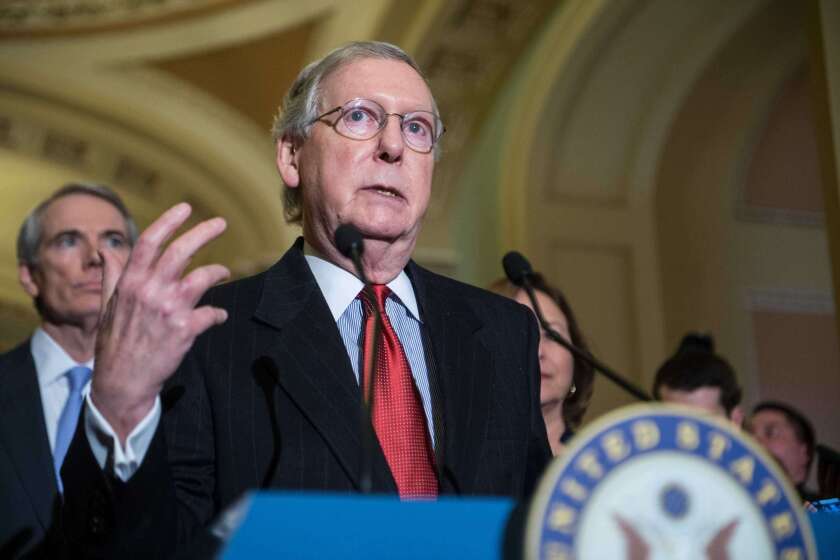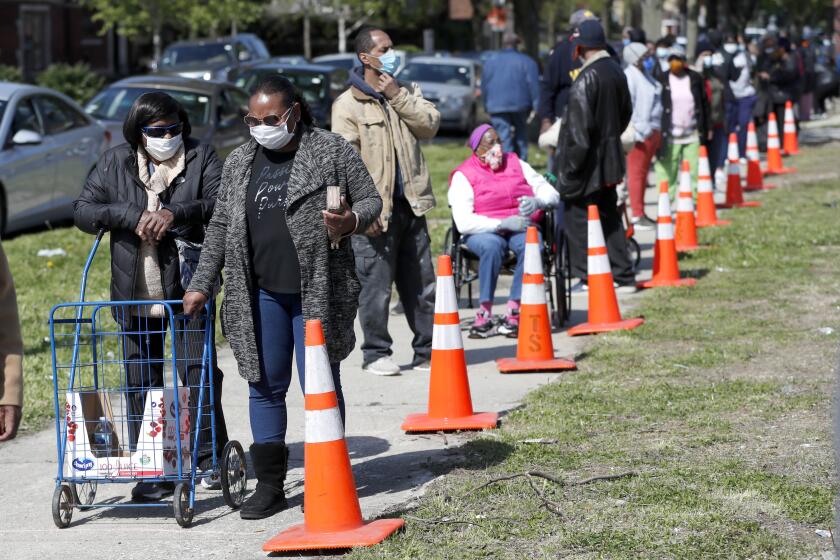Column: Coronavirus relief briefly saved millions from poverty, but they’re slipping back down
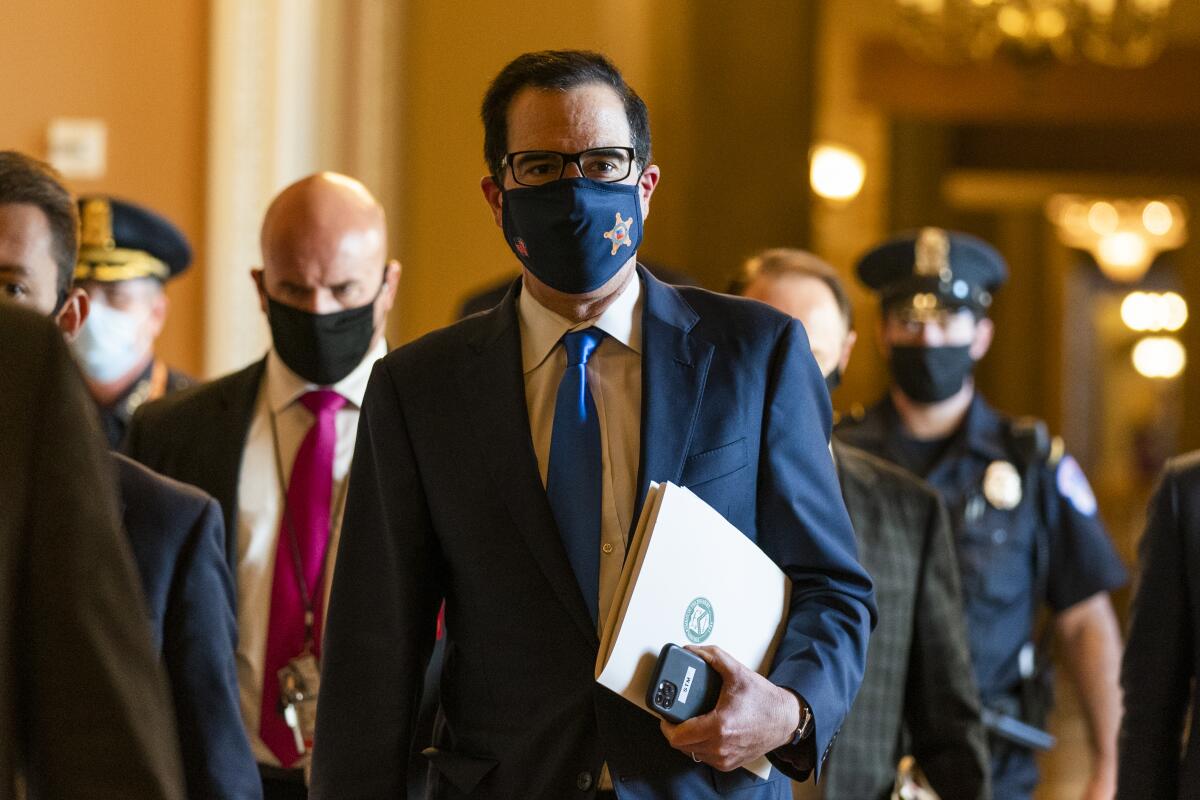
- Share via
In what was probably the greatest triumph of fiscal policy since the New Deal kept food on the table and a roof over the heads of millions during the depth of the Depression, the CARES Act kept millions of Americans out of pandemic-driven poverty.
But that’s over. Since May, when the act’s household assistance began to fade, as many as 7.9 million Americans have drifted back under the poverty line.
So conclude two new studies of the course of pandemic relief in the U.S. from May through September.
The increase in poverty in recent months was more noticeable for blacks, children, and those with a high school education or less.
— Sullivan, Meyer & Han
The findings could not be more urgent, as the Trump White House and lawmakers on Capitol Hill are locked in a stalemate over supplanting the $2-trillion CARES Act with a new stimulus package.
Although Treasury Secretary Steve Mnuchin and House Speaker Nancy Pelosi (D-San Francisco) are still said to be in discussions, Senate Majority Leader Mitch McConnell (R-Ky.) has thrown cold water on the prospects for passing a bill before the Nov. 3 election.
Depending on the outcome of the vote, that means that any further assistance may not appear until late January at the earliest.
The pandemic is destroying state and local budgets, as GOP refuses to help.
As Congress and the White House dither, moreover, the economic plunge is deepening. First-time unemployment filings reported Thursday spiked to 898,000, up from the previous week’s 845,000.
If there’s no new action, two unemployment programs created by the CARES Act will expire on Dec. 31, intensifying the pain for jobless Americans. These are a program that extended benefits to gig workers and others who don’t normally contribute to unemployment insurance, and a second program that extended benefits for an additional 13 weeks beyond the usual six month limit.
One of the new studies of poverty rates comes from a collaboration of economists at Notre Dame, the University of Chicago and China’s Zhejiang University.
Using statistics that provide a month-by-month picture of poverty rates this spring and summer, the researchers calculate that the CARES Act, which was enacted in March, reduced the poverty rate by 1.5 percentage points from January through June “despite the fact that employment rates fell by 14 percent in April — the largest one-month decline on record.”
That translates into roughly 5 million Americans lifted out of poverty by the CARES Act’s household relief checks of $1,200 per adult and $500 per child, as well as an augmented unemployment benefit of $600 per week for those thrown out of work during the pandemic.
Since the relief checks were a one-time benefit and the unemployment assistance expired at the end of July, however, the poverty rate has moved back up, by 1.4 percentage points through September.
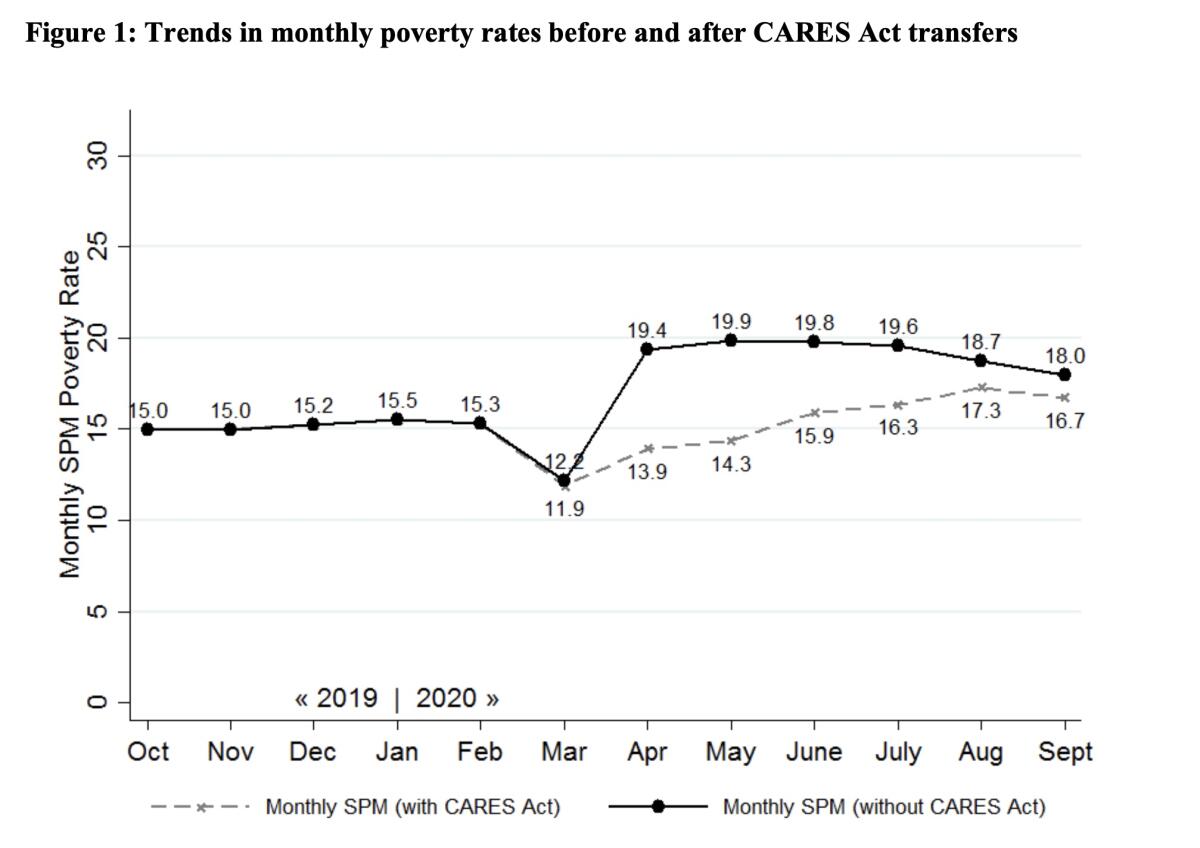
That’s about 4.6 million Americans plunged back into poverty, with more almost certain to follow — almost entirely reversing the decline from early in the pandemic.
“The increase in poverty in recent months was more noticeable for blacks, children, and those with a high school education or less,” the researchers wrote in their observation.
The second study, from experts at Columbia University, is even more striking. They calculate that the CARES Act “lifted more than 18 million individuals out of monthly poverty in April,” but that after the expiration of the unemployment benefit boost, the number fell to around 4 million.
The coronavirus crisis may mean that the time has come for universal basic income’s closeup.
From May through September, as the effects of the CARES Act have worn off, the poverty rate has risen by about 2.4 percentage points — 7.9 million Americans returned to below the poverty line.
The Columbia team finds, as did the Chicago and Notre Dame researchers, that “the increases in poverty have been particularly acute for Black and Hispanic individuals, as well as for children.”
What do these findings tell us? First, that putting cash into families’ hands can counteract even an unprecedentedly severe economic contraction such as the explosion of unemployment. Second, that cutting off aid while the causes of an economic downturn are still raging is an act of supreme governmental folly.
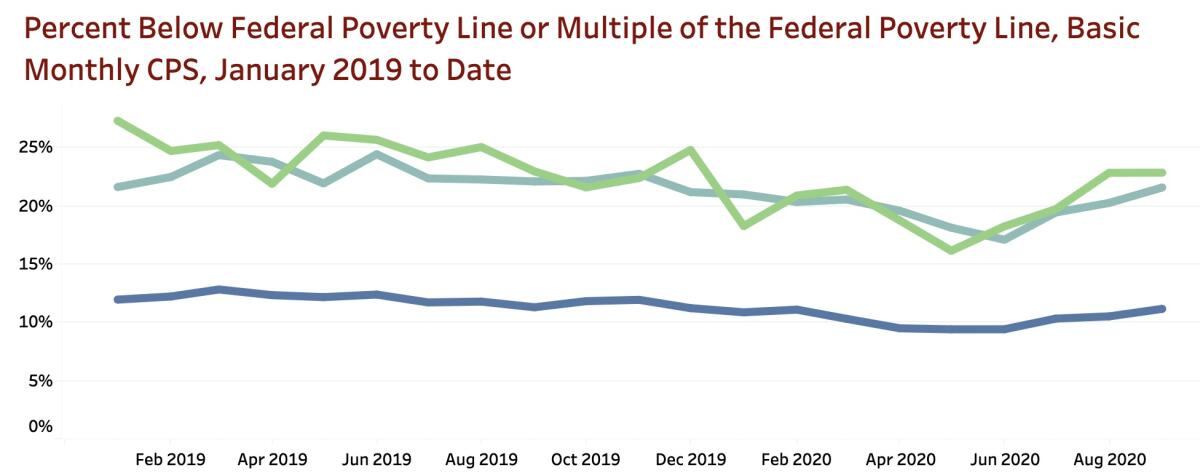
House Democrats passed a $2.2-trillion stimulus package dubbed the HEROES Act on Oct. 1, but it has never been taken up by the Republican Senate. Nor has it been endorsed by the White House, although there seem to be some stirrings from the Oval Office — possibly due to anxiety about the coming election — about the need for a big package.
Mnuchin cast doubt during an appearance remotely at the Milken Global Conference that “at this point getting something done before the election and executing on that would be difficult, just given where we are.”
Among the reasons is that Trump himself, typically, is tossing bombs into the negotiations. On Fox Business, he told Stuart Varney that he wouldn’t endorse Pelosi’s package “because she’s asking for all sorts of goodies. She wants to bail out badly run Democrat states and cities.... Your pride couldn’t let it happen.”
One great fear of poverty advocates was always that negotiations over a follow-on stimulus package would become ensnared in election jockeying.
What’s bizarre is that those blocking a new package seem to think it’s in their political interest to let some 8 million Americans suffer, even as they fail to lift a finger to address the pandemic itself.
A wave of more suffering is coming — in fact, we are standing on the edge of the water.
More to Read
Inside the business of entertainment
The Wide Shot brings you news, analysis and insights on everything from streaming wars to production — and what it all means for the future.
You may occasionally receive promotional content from the Los Angeles Times.

